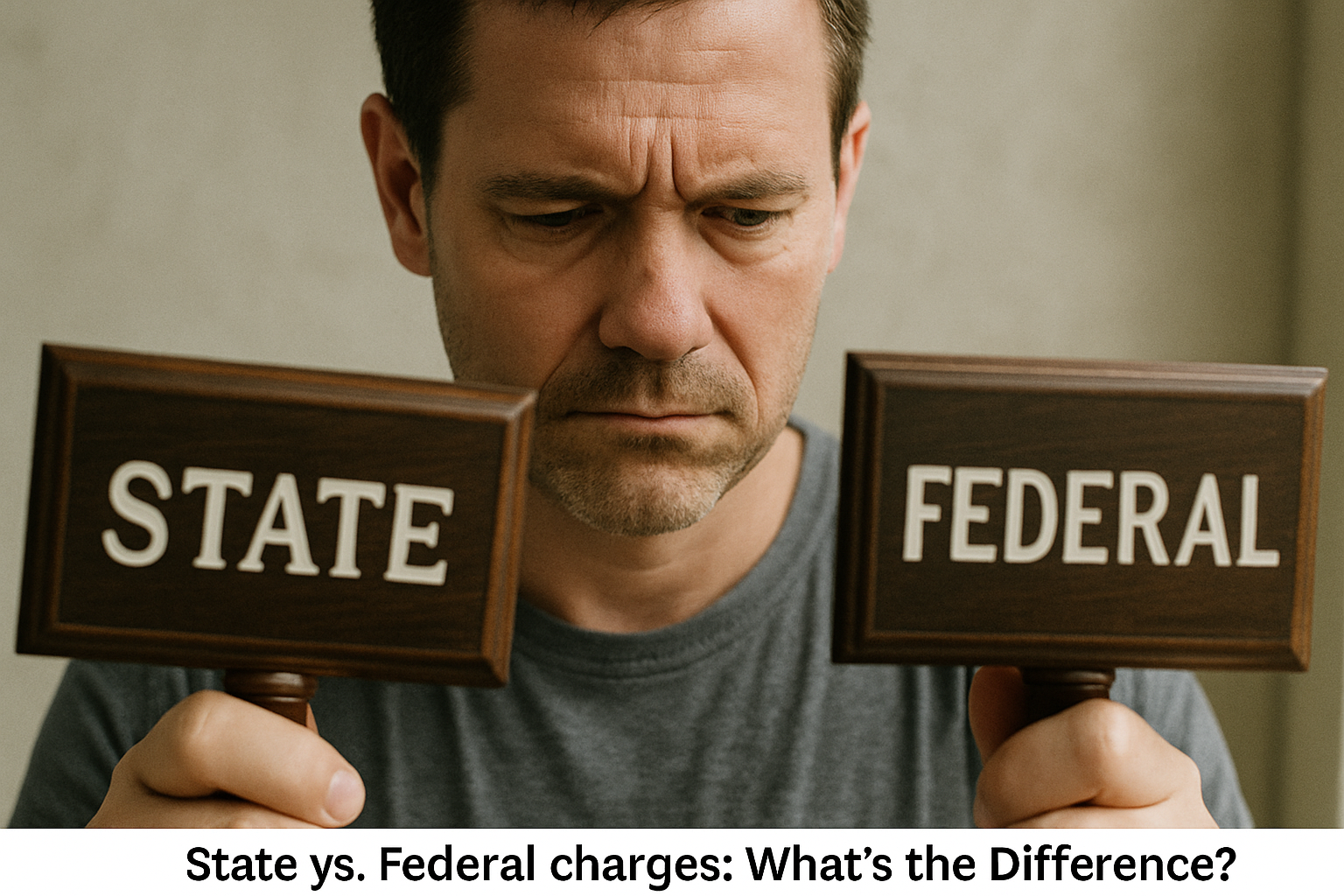State vs. Federal Charges: What’s the Difference?
Compare state and federal criminal charges in Texas, including sentencing differences, plea deal rules, and jurisdictional overlap in serious cases.

State vs. Federal Charges: What’s the Difference?
State vs. Federal Criminal Charges in Texas: What You Need to Know
When someone is charged with a crime, one of the first questions that arises is: Is this a state or federal case?
While both systems aim to uphold justice, they operate under different laws, procedures, and consequences. Understanding the distinction is crucial — especially in Texas, where state laws can differ significantly from federal ones.
1. Jurisdiction: Who Has Authority?
- Federal Courts handle cases involving:
- Violations of federal law
- Crimes that cross state lines (e.g., drug trafficking, wire fraud)
- Immigration offenses
- Organized crime and terrorism
- Texas State Courts handle:
- Violations of state law (e.g., assault, theft, DUI)
- Most family law matters
- Juvenile offenses
- Local misdemeanors and felonies
2. Law Enforcement Agencies Involved
- Federal Agencies: FBI, DEA, ATF, Homeland Security
- State & Local Agencies: Local police, county sheriffs, Texas Rangers, District Attorneys
3. Types of Crimes Commonly Charged
- Federal Crimes: Drug trafficking, white-collar crimes, immigration violations, cybercrime, racketeering (RICO)
- State Crimes: Assault, domestic violence, theft, DUI/DWI, possession of controlled substances
4. Penalties and Sentencing Differences
Federal Sentencing
- No traditional plea deals — sentencing is determined after a guilty plea or conviction
- A Presentence Investigation Report (PSI) is prepared by a federal probation officer
- Sentencing follows Federal Sentencing Guidelines
- Federal sentences are often longer and more rigid, with limited parole options
Texas State Sentencing
- Plea deals are common and negotiated between defense and prosecution
- Sentencing varies by county, judge, and case specifics
- Options include probation, deferred adjudication, and parole eligibility
- Texas law allows for more flexibility and rehabilitation-focused outcomes
5. When Federal Authorities Take Over a State Case
It’s not uncommon for a case that begins in state court to be picked up by federal prosecutors — especially if the crime has interstate or national implications.
Dual Jurisdiction
- The federal government can charge someone for the same conduct as the state if it violates federal law
- This is not double jeopardy — state and federal systems are separate sovereigns
- In some cases, both state and federal charges proceed independently
6. Real-Life Examples from Texas Cases
Aggravated Robbery
A client was charged with aggravated robbery in Texas state court. Later, federal prosecutors filed charges for the same incident, arguing it affected interstate commerce — a common basis for federal jurisdiction.
Murder and RICO Charges
Another client faced murder charges at the state level. Federal authorities later filed RICO charges, alleging the murder was part of a broader criminal enterprise. This allowed federal prosecutors to pursue a more expansive case with harsher penalties.
Conclusion: Know Your Rights — and Your Options
Facing criminal charges is overwhelming — and knowing whether your case is state or federal can make a major difference in how it's handled, what penalties you face, and how you should prepare your defense.
If you or someone you care about is facing criminal charges in Texas, don’t wait to get clarity. The Law Office of Ray Vazquez has experience navigating both state and federal systems — and can help you understand your options, protect your rights, and fight for the best possible outcome.
Call the Law Office of Ray Vazquez today at (832) 343-8023 or visit rayvazquezlaw.com to schedule a confidential consultation with an experienced attorney in the Greater Houston Area.


